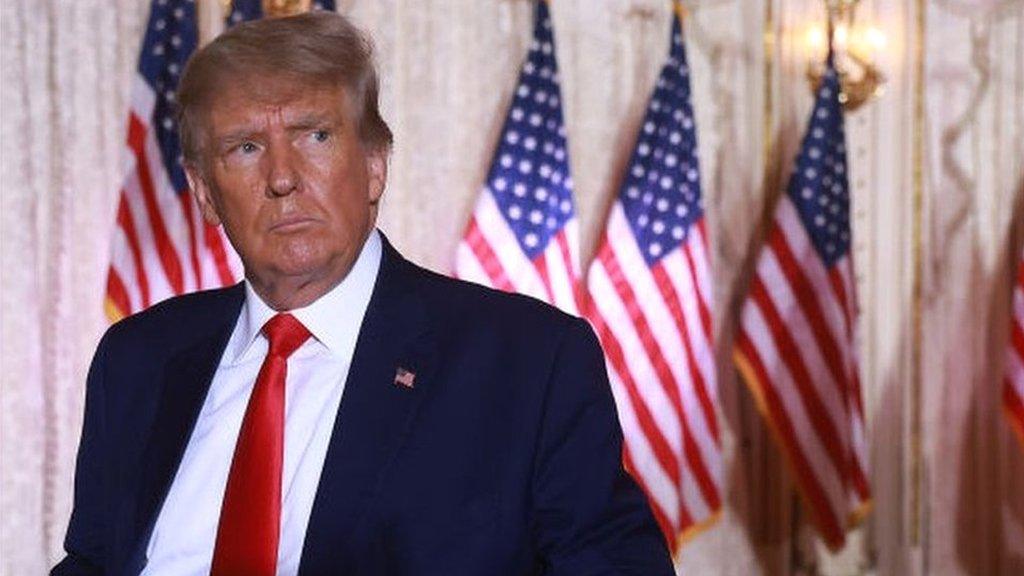The long journey to getting Trump's taxes released
- Published
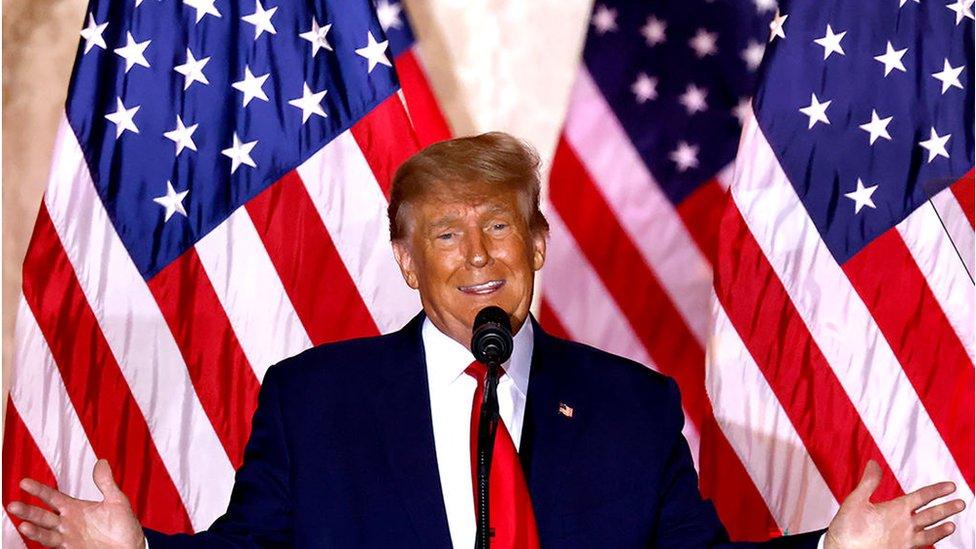
Former President Donald Trump's tax returns have been released, ending a bitter six-year long battle to gain greater insights into his finances.
The returns stretch from 2015 through 2020, covering Mr Trump's candidacy and time in the White House.
They give details of various entities through which he would have paid tax, including holdings companies and personal income.
The BBC is reviewing the documents.
Responding to Friday's release of thousands of pages of tax returns, Mr Trump's camp warned that the disclosure will lead to the US political divide becoming "far worse".
"The Democrats should have never done it, the Supreme Court should have never approved it, and it's going to lead to horrible things for so many people," his statement said.
Ever since his entry into politics, critics have been keen to get Mr Trump - whose foundational pitch to voters had been that his business success made him the best choice to run the country - to show what his wealth actually looked like.
He had steadfastly refused.
Democrats who control the House of Representatives and oversaw the release argued that it was a necessary act of oversight.
Representative Don Beyer, a member of the House Ways and Means Committee which released the documents, said on Friday that Mr Trump "abused the power of his office to block basic transparency on his finances and conflicts of interest which no president since Nixon has foregone."
The committee also found that the Internal Revenue Service - the US federal entity charged with tax collection - failed to audit Mr Trump during his first two years in office, and only began doing so after congressional oversight proceedings were started in 2019.
Here's what it took to get to the disclosures made public.
Trump defies tradition
For decades, presidential candidates and officeholders have released their tax returns to the public in the interest of transparency and accountability.
The longstanding tradition is "mainly about trying to ensure the public that the president is operating free of conflicts and entanglements, and taxes are sort of the window into the financial soul of someone," said Steve Rosenthal, senior fellow at the nonpartisan Tax Policy Center.
But Mr Trump "crashed all the norms," Mr Rosenthal said, by refusing to release his tax returns as a candidate when he ran for office in the 2016 presidential election.
His fierce insistence on the matter invited scrutiny and speculation among critics that he had something to hide - could it be that Mr Trump was not as rich as he claimed, some asked, or that he had paid less tax than he should?
Supporters, meanwhile, backed his right to his privacy. After all, there is no legal requirement for a candidate to release their tax returns.
New York Times investigations
But over the course of his presidency and afterward, the public has gradually come to gain some insight into Mr Trump's personal tax history.
A great deal of those revelations come from an investigation published by the New York Times in 2020, which obtained two decades of Mr Trump's tax returns from before his time in office. The documents gave unprecedented insight into Mr Trump's businesses.
They revealed he paid little to no federal income taxes over that period, and that Mr Trump had reported in his tax filings that his businesses lost significant amounts of money - despite his public boasts of financial success. In 2017, the Times reported, Trump paid just $750 (£623) in federal income tax despite being a billionaire.
The New York Times reporting "calls into question whether he's a billionaire, or is there some trick he uses to avoid pay taxes, legal or not," Mr Rosenthal said.

Taking the fight to the Supreme Court
Meanwhile, in Washington, Democrats began using their powers to conduct oversight of Mr Trump once they gained control of the House of Representatives in early 2019.
The Ways and Means Committee fought for three years to obtain Mr Trump's tax returns.
The fight went all the way to the US Supreme Court this year, and in November, the justices refused to block the release of Mr Trump's tax returns to the committee, thereby paving the way for their release.
On 21 December, the committee voted to release the tax returns they had obtained to the public, with the vote splitting along party lines.
Friday's release of the tax documents come mere days before Republicans are set to take over control of the House of Representatives, potentially signalling the end of any continued pursuit of looking into Mr Trump's finances for the foreseeable future.
It is possible that the US Senate, which is controlled by Democrats, could continue investigations.
Related topics
- Published21 December 2022
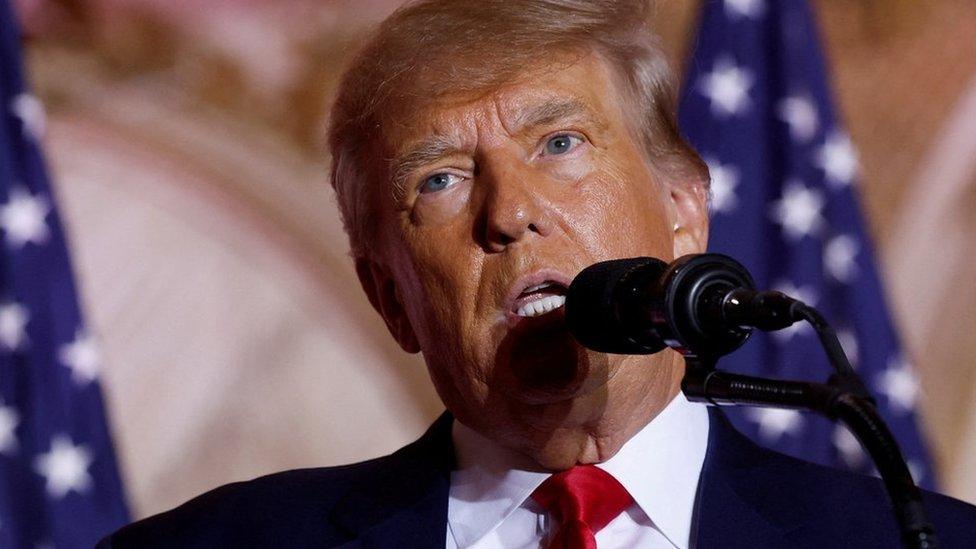
- Published21 December 2022
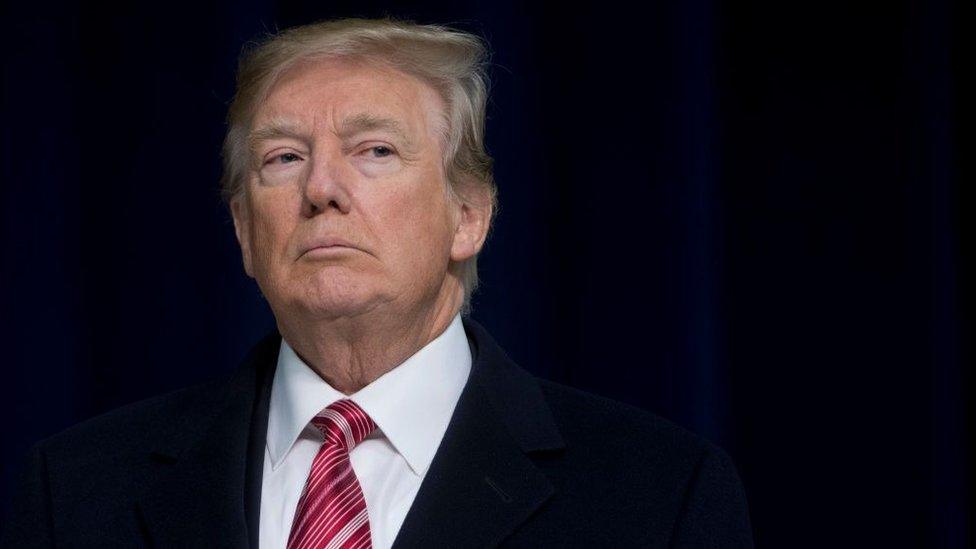
- Published2 August 2023
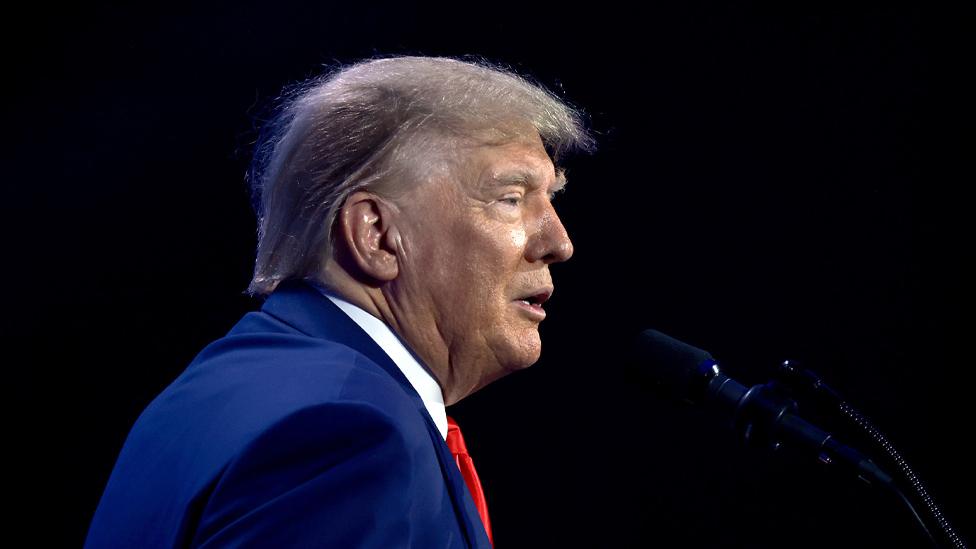
- Published23 November 2022
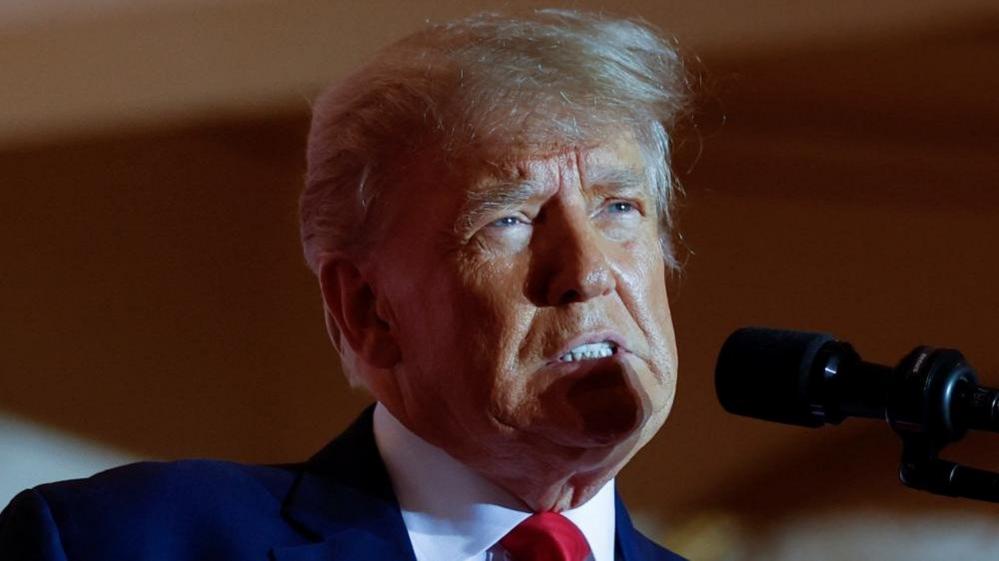
- Published19 November 2022
